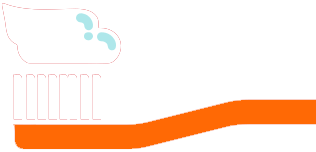Dental cavities are the most common oral health problem in children and adults, but what leads to tooth decay? Streptococcus mutans ("S.mutans") is a type of bacteria found on most tooth surfaces, and hard to reach areas like pits and fissures - the grooves found in your premolars and molars. Unfortunately for us, S. mutants are the main bacteria that promote decay and the breaking down of tooth enamel. But no need to worry, you can prevent this! Learn about streptococcus mutans, and what you can start doing to help protect your teeth.

Streptococcus Mutans: Where And How To Confront It
Medically Reviewed By Colgate Global Scientific Communications
What is Streptococcus Mutans?
Many types of bacteria, both good and bad, are always present in your mouth. Streptococcus mutans is a bacteria that naturally forms in your mouth and can build up on the surfaces of teeth at any age - from infancy before baby teeth erupt and even in adults who have had their permanent teeth for decades. This bacteria can be harmful, as it is the main contributor to tooth decay and cavities. But how do S.mutan bacteria do this? When you eat sugary foods, the streptococcus bacteria break down the sugar and use it to produce acids that attack tooth enamel.
How to Control Streptococcus Mutans
Although this bacteria is naturally present in the mouth, there are some things you can start doing to reduce S.mutans and prevent cavities.
- Brush your teeth twice a day
- Clean between your teeth with interdental brushes, floss, or water flossers, where S. mutans can spread beyond a brush's normal reach
- Keep up with your regular dental checkups
- Avoid sugary foods and drinks, and try replacing these with nutritious alternatives
- Consider pit and fissure sealants if necessary
Most adults and children have had cavities before, but understanding how the S.mutans bacteria works can help you protect your child's teeth and your own. Streptococcus mutans is an innate bacteria found in the mouth and can cause cavities. Brush your teeth twice a day, and floss in hard to reach places to reduce the presence of this bacteria. Consider cutting back on sugary foods too, this will stop the production of harmful acids in your mouth. Lastly, protect your oral health and regularly visit your dentist checkups.
This article is intended to promote understanding of and knowledge about general oral health topics. It is not intended to be a substitute for professional advice, diagnosis or treatment. Always seek the advice of your dentist or other qualified healthcare provider with any questions you may have regarding a medical condition or treatment.







